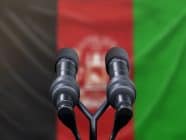Media research in Scandinavian countries is being internationalized, reflecting a Europe-wide trend towards publishing and working across national borders. The number of articles published in international journals by Nordic academics has doubled in the last ten years, according to a recent study by David Fernández-Quijada, a media analyst at the European Broadcasting Union.
Fernández-Quijada analyzed the publication patterns of communication scholars from the five Nordic countries, by applying bibliometric techniques to over 500 articles published in international scientific journals from 2001 to 2010. He found that internationally published research articles had increased by 243 per cent during that period. Scandinavian academics predominantly co-authored research or collaborated with Anglo-Saxon scholars, particularly from North America.
Fernández-Quijada describes the years between 2000 and 2010 as a “golden decade” for Scandinavian media research. His study was published in the journal Nordicom Review (Nr. 1/2014).
If he had looked at other small European countries, such as Switzerland or Austria, Fernández-Quijada would have discovered similar evidence of international collaboration. These countries connect more easily with international partners.
One particular researcher has pushed the Austrian and Swiss scientific communities to internationalize their research. Klaus Schönbach, currently working at the Northwestern University in Qatar, previously presided over a commission to evaluate Switzerland’s media research at the beginning of the century. Thereafter he was appointed by the University of Vienna, where he restructured the Department of Communications, and recruited excellent researchers from abroad.
In Eastern Europe, including the Baltic states, the race to catch up in the field of media research has also led to a surge of internationalization. Polish researchers have contributed with their dignified journal: Central European Journal of Communication. This biannual journal provides a platform for researchers from neighboring countries. The geographical focus is widening, with American researchers among the authors in the most recent edition.
As a part of this push, media research has been reorienting over the last few years, with more joint research ventures at a European level. For example, Thomas Hanitzsch (University of Munich) and his fellow researchers are currently analyzing the culture of journalism across 21 countries. Researchers from 11 European and two Arabic countries, led by Susanne Fengler (University of Dortmund), have recently presented their report about media accountability, taking a closer look at how newsrooms reflect journalistic work and handle mistakes and audience complaints. The research team of Luigi Parcu (European University Institute, Florence) has started a long term project to analyze media pluralism in Europe. With such comparative work, “best practice” examples can be identified much more frequently, widening journalists’ horizons and providing professional orientation in a way that was completely unthinkable ten years ago.
However, there is a downside. As most of the research results are published in English, it becomes more difficult to use them adequately outside the Anglo-Saxon world. This harks back to the middle ages, when scholars isolated themselves from the rest of the world by communicating in Latin among each other. English has become the lingua franca of communication sciences and media research. As a consequence it has become harder for media practitioners to access, and therefore benefit from, research results. It also means that researchers themselves are less able to differentiate linguistically, as they can no longer publish in their mother tongue. Thus, their scientific prose becomes even less digestable.
Sources: David Fernández-Quijada: A Golden Decade. Exploring Internationalization in Nordic Communication Research, in: Nordicom Review 35 (2014), Nr. 1, 135-152
Fengler, Susanne et al. (2014): Journalists and Media Accountability (2014): An International Study of News People in the Digital Age. New York: Peter Lang
European Media Pluralism Monitor
Disclaimer: Stephan Russ-Mohl is one of the editors of the book “Journalists and Media Accountability” which is mentioned in his article
This article was first published in Schweizer Journalist, Nr. 8 + 9/2014 and is available on EJO also in German, Italian, Latvian, Polish, and Romanian.
Photo credit: Marcela Palma / Flickr Cc
Tags: Central European Journal of Communication, Europe, European Broadcasting Union, international, Klaus Schönbach, media, Media research, Media studies, Research














































